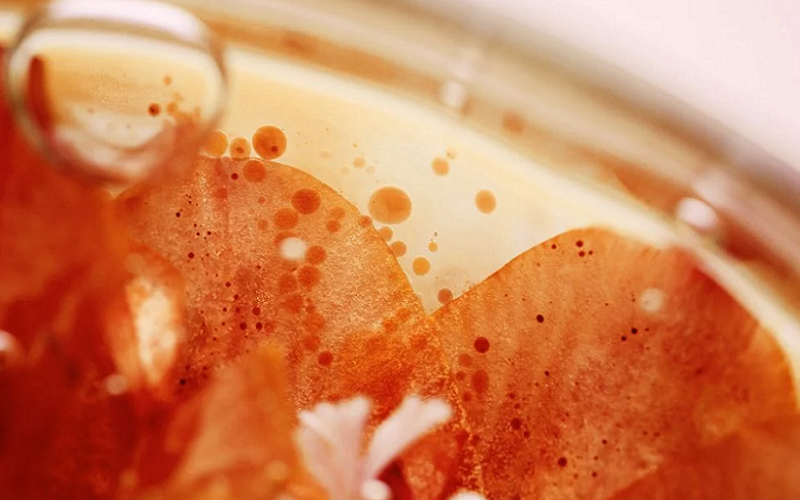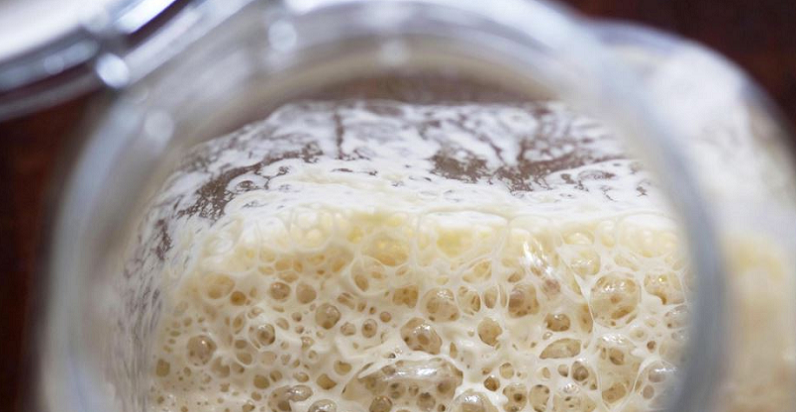
In recent years, fermented ingredients have emerged as a groundbreaking trend in the skincare industry, known for their unique properties and remarkable benefits. This isn’t just a fleeting fad; it’s a new age revolution in how we nurture and protect our skin. But what exactly is fermented skincare, and why is it garnering so much attention? Fermentation, a process deeply rooted in human history, is now finding its way into our serums, creams, and masks, offering enhanced efficacy and deeper nourishment. From enhanced absorption of nutrients to the suitability for sensitive skin types, fermented skincare products offer a plethora of advantages.
Contents
The Science Behind Fermentation
Fermentation has been a cornerstone in various industries, from food and beverages to pharmaceuticals. In skincare, this process is more than a trend; it’s a scientific breakthrough that is reshaping our understanding of skin health.
Explanation of Fermentation Process
Fermentation, in its essence, is a metabolic process where microorganisms like yeast and bacteria convert organic compounds, such as sugars, into alcohols, acids, or gases. This transformation occurs in an anaerobic environment, meaning it happens without the presence of oxygen. In skincare, this process is carefully controlled to ensure the growth of beneficial microbes while inhibiting harmful ones.
The fermentation of skincare ingredients results in smaller, more easily absorbed molecules. This breakdown not only enhances the potency of the ingredients but also makes them gentler on the skin. The process also creates new beneficial compounds, like amino acids and antioxidants, that were not present in the original substance.
Key Ingredients in Fermented Skincare Products
The world of fermented skincare is rich with a variety of ingredients, each bringing unique benefits. Commonly fermented ingredients include:
- Fermented Yeast Extract: Known for its ability to improve skin elasticity and increase moisture levels.
- Lactic Acid Bacteria: This group includes probiotics which are excellent for balancing skin’s microbiome.
- Fermented Oils: Such as argan or sea buckthorn oil, these provide deeper nourishment and better absorption.
- Fruit and Herbal Extracts: Fermentation enhances their antioxidant properties, making them more potent against environmental stressors.
These ingredients, once fermented, are better suited to penetrate deeper into the skin’s layers, providing more effective results [1].
Benefits of Fermentation for Skin Health
The benefits of fermentation in skincare are multifaceted:
- Enhanced Efficacy: As fermentation breaks down ingredients into smaller molecules, it increases their bioavailability. This means your skin can absorb these ingredients more easily and utilize their benefits more effectively.
- Increased Potency: Fermentation often enhances the antioxidant and nutritive properties of ingredients, making them more potent and beneficial.
- Gentleness: Fermented ingredients are typically gentler on the skin, making them suitable for sensitive skin types. They are less likely to cause irritation compared to their non-fermented counterparts.
- Natural Preservation: Fermentation can also act as a natural preservative, reducing the need for synthetic additives in skincare products.

Historical Context of Fermentation in Skincare
To truly appreciate the innovation that fermented skincare represents, it’s essential to understand its roots. The history of fermentation in skincare is as rich and diverse as the cultures that have contributed to its evolution.
Origins of Fermentation in Skincare
Fermentation in skincare isn’t a novel concept; its origins can be traced back thousands of years. Ancient civilizations, from the Egyptians to the Chinese, recognized the transformative effects of fermentation. For instance, in ancient Egypt, fermented plant-based oils were used for their healing and preserving properties.
Similarly, in East Asia, particularly in Korea and Japan, fermentation was integral to traditional beauty regimens. They fermented a variety of natural ingredients, such as rice and soy, to create remedies that enhanced skin health and longevity.
These early applications of fermentation were based on observations and experiences rather than scientific understanding. Yet, they laid the groundwork for what would become a pivotal aspect of modern skincare [2].
Traditional Uses of Fermentation in Skincare Across Cultures
The use of fermentation in skincare varied across different cultures, each having its unique methods and ingredients. In many Asian cultures, fermented rice water was popular for its brightening and anti-aging properties. Native Americans used fermented corn as part of their skincare rituals. In Africa, fermented plant extracts were used for both their medicinal and cosmetic benefits.
These traditional practices were often passed down through generations, highlighting a deep respect for natural processes and their harmonious relationship with skin health. This historical perspective underscores the time-tested efficacy of fermented ingredients, providing a solid foundation for their current popularity.
Evolution of Fermentation in Skincare to Modern-Day Practices
As skincare science advanced, the traditional wisdom of fermentation was revisited and refined. Modern-day fermentation techniques in skincare have evolved to be more controlled and precise, harnessing the power of specific bacteria and yeasts to ferment ingredients. This evolution has allowed for the creation of more potent and targeted skincare products.
Benefits of Fermented Skincare
As we get into the realm of fermented skincare, it becomes clear that this innovative approach offers a multitude of benefits for the skin. These advantages go beyond superficial enhancement, addressing various skin concerns at a deeper level.
Enhanced Efficacy of Ingredients
One of the most significant advantages of fermented skincare is the enhanced efficacy of its ingredients. Fermentation breaks down molecules into smaller, more potent forms, making them more easily absorbed by the skin. This means that the active ingredients in fermented skincare products can penetrate deeper into the skin layers, delivering their benefits more effectively. Whether it’s antioxidants, vitamins, or hydrating agents, their improved potency translates to better and quicker results for the user [3].
Improved Absorption and Penetration
The smaller molecule size of fermented ingredients not only increases their potency but also enhances their absorption and penetration into the skin. This improved absorption ensures that the skin utilizes the maximum benefits of the skincare products. For example, fermented hyaluronic acid can penetrate the skin more deeply than its non-fermented counterpart, providing superior hydration and plumping effects. This characteristic is particularly beneficial for anti-aging and reparative skincare products.
Natural Preservation and Longevity
Fermentation naturally extends the shelf life and preserves the integrity of skincare ingredients. This process reduces the need for synthetic preservatives, which can be irritating to some skin types. Fermented skincare products often have a more stable and longer shelf life, ensuring that the active ingredients remain effective over time. This natural preservation also aligns with the growing consumer preference for cleaner, more natural skincare options.
Suitability for Sensitive Skin
Fermented skincare products are generally gentler and more suitable for sensitive skin types. The fermentation process not only breaks down potentially irritating substances but also creates new skin-friendly compounds. These products are less likely to cause inflammation or adverse reactions, making them an excellent choice for individuals with sensitive or reactive skin. Additionally, the natural fermentation process ensures that these products are free from harsh chemicals, further reducing the risk of skin irritation.

Popular Fermented Ingredients
Fermented skincare is all about harnessing the power of nature’s most beneficial ingredients and elevating them through the fermentation process. This transformation not only enhances their potency but also makes them more skin-friendly.
Yeast Extracts
Yeast extracts are among the stars of fermented skincare ingredients. Rich in amino acids, minerals, and antioxidants, these extracts are known for their ability to repair and protect the skin. One notable example is Galactomyces Ferment Filtrate, derived from a type of fungus. It is renowned for its moisturizing and brightening properties, helping to improve skin texture and reduce the appearance of fine lines and wrinkles.
Fermented Oils and Extracts
Fermented oils and extracts take the nourishing properties of natural oils and enhance them. Oils like argan, olive, and sea buckthorn undergo fermentation to break down their molecules, making them lighter and easier for the skin to absorb. This process also increases the concentration of antioxidants and vitamins in the oils, boosting their ability to hydrate, rejuvenate, and protect the skin [4].
Probiotics and their Role
Probiotics, beneficial bacteria commonly associated with gut health, also play a significant role in skincare. When applied topically, probiotics can help balance the skin’s microbiome, which is crucial for maintaining a healthy skin barrier. Lactobacillus and Bifidobacterium are two types of probiotics frequently used in fermented skincare. They help soothe inflammation, protect against environmental stressors, and improve skin hydration and resilience.
Fermented Skincare Products
Fermented skincare products are diverse and cater to various skin needs and preferences. From facial toners to serums and creams, the range of products incorporating fermented ingredients is vast and growing. This section will guide you through the different types of fermented skincare products available, how to choose the right one for your skin type, and the best practices for application.
Types of Products Available
The fermented skincare market offers a wide array of products to suit different steps of a skincare routine:
- Toners and Essences: These light, hydrating products often contain fermented extracts and are designed to prepare the skin for further treatment.
- Serums: Concentrated formulations packed with active fermented ingredients, serums target specific skin concerns like aging, hydration, or pigmentation.
- Moisturizers and Creams: These are designed to lock in moisture and often contain fermented oils for added nourishment.
- Masks and Treatments: These intensive care products provide a higher concentration of fermented ingredients for targeted skin therapy.
Each product type offers unique benefits, allowing you to incorporate fermented ingredients at various stages of your skincare routine [5].
How to Choose the Right Product
Choosing the right fermented skincare product depends on your skin type and concerns:
- For Dry or Mature Skin: Look for products with fermented oils and yeast extracts, known for their hydrating and anti-aging properties.
- For Oily or Acne-Prone Skin: Fermented products with probiotics or fruit acids can help balance skin microbiome and control excess oil.
- For Sensitive Skin: Opt for products with minimal ingredients and a focus on soothing, fermented extracts.
It’s also essential to consider the product’s texture and formulation to ensure it’s compatible with your skin type and comfort.
Application Tips and Best Practices
To get the most out of fermented skincare products, follow these application tips:
- Layering: Start with lighter products like toners or essences and move to heavier creams or oils.
- Consistency: Regular use is key to seeing the benefits of fermented skincare. Incorporate these products into your daily routine.
- Patch Testing: Always perform a patch test, especially if you have sensitive skin, to ensure compatibility.
- Combining Products: Be mindful when combining fermented skincare with other active ingredients to avoid irritation.
References
[1] Biological and Cosmetical Importance of Fermented Raw Materials
[2] Fermented beauty will totally transform your skin, here’s what you need to know
[3] Fermented Skincare?
[4] Fermented Skin Care: Here’s What You Need to Know
[5] What the Deck: Fermented Skincare Ingredients
